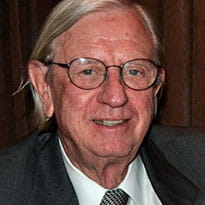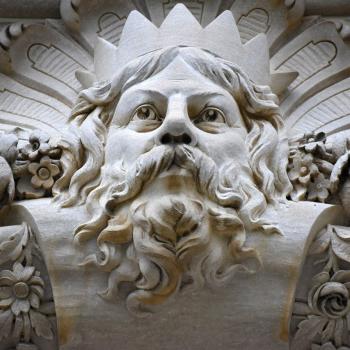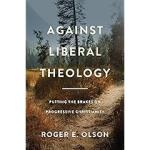Now Featured in the Patheos Book Club
The Bonhoeffer Reader
Edited by Clifford J. Green and Michael P. DeJonge
About the Book
Follow the German scholar's theological development from seminary to Nazi prison through new translations of classic works and documents available for the first time. Dietrich Bonhoeffer's execution for participating in a conspiracy against Hitler, while an event through which his work takes on deeper meaning, represents but one small part of his passion, teaching, and theological development over his short career. An esteemed scholar and an engaged ecumenist, Bonhoeffer traveled, taught, preached, and studied widely, incorporating new insights into his academically rigorous theological writings. Now, for the first time, a representative collection of all Bonhoeffer's theological works is available in a single volume edited by Bonhoeffer scholars Clifford J. Green and Michael P. DeJonge, The Bonhoeffer Reader (Fortress Press, November 1, 2013).
The Bonhoeffer Reader follows on the heels of the newly completed 16 volume Dietrich Bonhoeffer Works English Edition (DBWE), a major 25-year translation project supported by the International Bonhoeffer Society and published by Fortress Press. From this massive collection of books, lectures, articles, letters and sermons—including even previously unpublished lectures—about 800 pages of all Bonhoeffer's key theological writing have been chosen to reveal his central theological ideas and their development. The Reader is formatted so that students can easily go back to the original DBWE volumes and all the additional resources included in them, making it easier than ever to pursue a more comprehensive study of Bonhoeffer's brilliant theological career.
As a university student, Bonhoeffer carved his own path through the liberal school of mentor Adolf von Harnack and the neo-orthodoxy of Karl Barth. Prior to his ordination, Bonhoeffer studied at Union Theological Seminary, during which time he was also exposed to the worship and the civil rights struggles of African-Americans in Harlem. Bonhoeffer traveled widely in Europe and North America and was an outspoken advocate for peace, ecumenism, and social justice.
His last years in Germany were filled with challenges as he continued to oppose Hitler and the Third Reich, ran a clandestine seminary, and was imprisoned. Through the editors' historical and conceptual introductions to Bonhoeffer's texts, The Bonhoeffer Reader highlights the theology that inspired his own historical actions and that continues to challenge and inspire his readers today.
About the Authors
 Clifford J. Green is executive director of the Dietrich Bonhoeffer Works English Edition, four volumes of which he edited. Author of the acclaimed Bonhoeffer: A Theology of Sociality and numerous other Bonhoeffer studies and a co-editor of the Dietrich Bonhoeffer Yearbook, he was professor of theology at Hartford Seminary, Connecticut, where he taught from 1981 to 2000.
Clifford J. Green is executive director of the Dietrich Bonhoeffer Works English Edition, four volumes of which he edited. Author of the acclaimed Bonhoeffer: A Theology of Sociality and numerous other Bonhoeffer studies and a co-editor of the Dietrich Bonhoeffer Yearbook, he was professor of theology at Hartford Seminary, Connecticut, where he taught from 1981 to 2000.
 Michael P. DeJonge is associate professor and graduate director in the Religious Studies department at the University of South Florida, where he teaches in the areas of modern religious thought and history of Christianity. He did his Ph.D. in Religion at Emory University, with dissertation research at the Freie Universität in Berlin supported by the Fulbright Commission and the Berlin Program for Advanced German and European Studies.
Michael P. DeJonge is associate professor and graduate director in the Religious Studies department at the University of South Florida, where he teaches in the areas of modern religious thought and history of Christianity. He did his Ph.D. in Religion at Emory University, with dissertation research at the Freie Universität in Berlin supported by the Fulbright Commission and the Berlin Program for Advanced German and European Studies.
DeJonge is author of Bonhoeffer's Theological Formation, which looks especially at Bonhoeffer's perhaps most technical and least understood work, Act and Being, and is currently at work on a book about Bonhoeffer's intellectual relationship to Martin Luther. DeJonge sits on the advisory board of The Dietrich Bonhoeffer Yearbook and the board of directors for the English language section of the International Bonhoeffer Society.
DeJonge and Green have become collaborators over a shared interest in the academically rigorous interpretation of Bonhoeffer as a thinker and theologian. One product of that shared interest is The Bonhoeffer Reader, which both editors see as an economical, convenient, and reliable point of access to Bonhoeffer the theologian, offering a way, in Green's words, "to engage the whole Bonhoeffer, and to think critically, creatively, and constructively about the meaning of Christian faith today."
11/16/2013 5:00:00 AM




